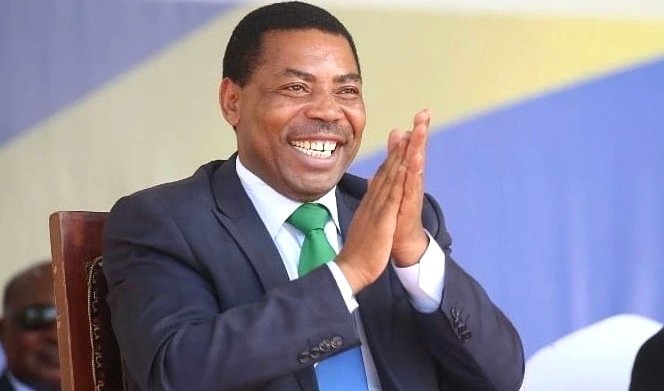Tanzania’s President Samia Suluhu Hassan on Thursday appointed former finance minister Mwigulu Nchemba as the country’s new prime minister, following a fiercely contested general election that has sparked nationwide unrest and international concern over alleged human rights abuses.
The Tanzanian parliament confirmed Nchemba’s appointment in a near-unanimous vote, solidifying Hassan’s political control after the October 29 election, which opposition parties and rights groups say was marred by intimidation, vote-rigging, and the exclusion of key opposition candidates.

The United Nations Human Rights Office has reported that hundreds of people were killed during protests that erupted after the results were announced. Some opposition activists and local rights groups have alleged that security forces may have killed more than 1,000 people, though the government has dismissed the figures as exaggerated and declined to release its own tally.
A Trusted Ally Takes the Helm
Nchemba, a senior figure within the ruling Chama Cha Mapinduzi (CCM) party, is considered one of Hassan’s most trusted allies. A former police officer turned economist, he has served in parliament since 2010 and previously held several key cabinet positions, including home affairs minister and finance minister.
In his acceptance speech, Nchemba pledged to “serve with diligence and transparency” and to focus on boosting the economy, which the government expects to grow by 6% this year, driven by infrastructure development in transport and energy sectors. The 2025 fiscal budget is projected to increase by about 12% to finance ongoing projects, including the Standard Gauge Railway (SGR), rural electrification programs, and road construction.
Hassan, who became East Africa’s first female head of state in 2021 after the death of her predecessor John Magufuli, has faced mounting criticism over her government’s handling of dissent. While she initially gained international praise for reversing some of Magufuli’s restrictive policies, her recent election victory has been clouded by accusations of repression and a crackdown on political opponents.
Election Fallout and International Reaction
Opposition leaders, including members of the Chadema party, have called for an independent investigation into the election and the post-vote violence. Several were briefly detained during the unrest, while others have gone into hiding.
Human rights organizations, including Amnesty International and Human Rights Watch, have urged the Tanzanian government to release protesters arrested during demonstrations and to allow journalists unrestricted access to conflict-affected areas.
“The scale of the violence raises serious concerns about the state’s use of force and the protection of civil liberties,” said Juliana Mrema, an East African political analyst. “This could have long-term implications for Tanzania’s democratic credibility.”
Hassan’s administration has rejected accusations of election fraud, maintaining that the vote was “free, fair, and peaceful.” Government spokespersons have accused opposition groups of “inciting unrest to undermine stability.”
Political Stability and Economic Ambitions
Despite the unrest, Hassan’s government is pressing ahead with ambitious economic programs aimed at transforming Tanzania into a regional logistics hub. The administration is focusing on expanding the country’s ports, improving rural infrastructure, and attracting investment into the energy and mining sectors.
However, analysts warn that political instability could dampen investor confidence and strain relations with development partners, including the United States and the European Union, which have already reduced some aid in response to governance concerns.
Richard Mbunda, a political science lecturer at the University of Dar es Salaam, said Hassan’s decision to elevate Nchemba underscores her reliance on loyalists to maintain control.
“She trusts him because he has remained steadfast through multiple cabinet reshuffles,” Mbunda said. “Nchemba represents continuity within CCM, but also a test of whether the government can balance loyalty with reform.”
As protests continue in parts of the country, Tanzania stands at a crossroads—between its ambition for economic growth and the urgent calls for political accountability and justice.
Nigerian Aid Groups Rescue Children Falsely Accused of Witchcraft Amid Rising Abuse Case
Source:Africa Publicity








